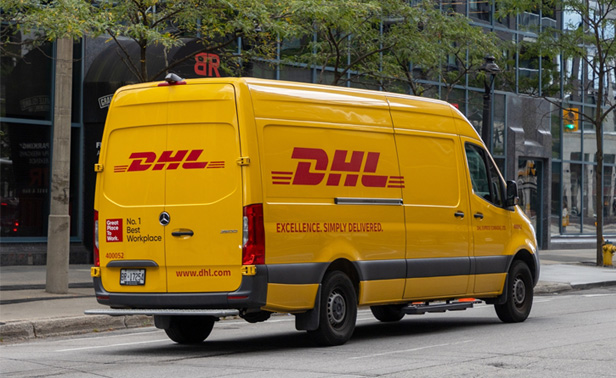Key Takeaways
• Tentative Agreement Reached: DHL Express Canada and Unifor have reached a tentative agreement after a prolonged labour dispute involving over 2,100 workers. Despite this progress, operations remain suspended and workers are still on strike until the deal is ratified.
• Industry-Wide Impact: The strike has disrupted logistics for many companies, prompting a shift to other services like FedEx for deliveries. The situation has also highlighted the fragility of Canada’s parcel delivery infrastructure, especially with ongoing tensions at Canada Post.
DHL Express Canada has reached a tentative agreement with Unifor, the Canadian private sector union that represents over 2,100 DHL drivers, warehouse workers and administrative staff, on a new contract.
DHL locked out workers on June 8 due to disagreement over the new contract, and Unifor immediately responded by hitting the picket lines.

For about 10 days, DHL continued operations with temp workers but was ordered to stop using those workers on June 20 due to just-passed legislation in Canada that makes it illegal for a company to use replacement workers during a labour dispute. Operations have been suspended since then.
Unifor originally demanded a 22% hourly wage increase and a more than 40% increase due to cost of living for owner-operator drivers. DHL Express had countered with a 15% wage increase over the next five years, additional pension benefits and a revised compensation package. Negotiations have been ongoing for the past year.
Now, a preliminary settlement has been reached. However, workers will remain on strike and operations are suspended until the deal is approved and finalized.
The labour dispute and subsequent operations suspension has forced companies in promo to lean into contingency plans – while many have opted for FedEx to take care of deliveries, they expressed concern about delays due to more parcel volume being moved to FedEx during the strike. Once suspensions resume, there will be a backlog of parcels for DHL to work through; there’s also a chance some customers who pivoted to FedEx, worried about future disputes, may keep their account there.
“I’m worried that FedEx service may slow down,” says Laura Hansen, president of Vancouver-based Image Group Inc. (asi/230059). “They may opt to limit how much more they take on, so they don’t disappoint existing customers. We’ll be monitoring our shipments closely.”
Still, FedEx remains the most viable alternative for promo companies looking to minimize disruption as the strike continues for the time being. “FedEx costs a bit more,” says Andrew Witkin, CEO of StickerYou (asi/89791) in Toronto, “but since our prices are already very good it shouldn’t impact distributors too much.”
Meanwhile, relations between Canada Post and the Canadian Union of Postal Workers (CUPW) have frayed further after a threat of strike and a ban on overtime work since May following the deadline of a temporary contract. The Canadian government has forced the CUPW to vote on Canada Post’s latest offer, much to the union’s chagrin. No date has been set for the vote yet, and the CUPW has said it will urge its members to vote “no.”
The CUPW contract deadline was extended to May 22 in late 2024, after a five-week strike during which all operations were suspended. Savvy companies have since made alternative plans as parcel activity at Canada Post has plummeted, putting the future of the government entity at serious risk.
“Except for drop shipments to PO boxes and the odd client payment by cheque, the impact of the DHL strike is minimal for us short-term,” says Ann Baiden, president of Innovatex Solutions Inc. (asi/231194) in Richmond Hill, ON. “Having experienced similar disruptions last year, we’ve used that experience to build a solid contingency plan.”


